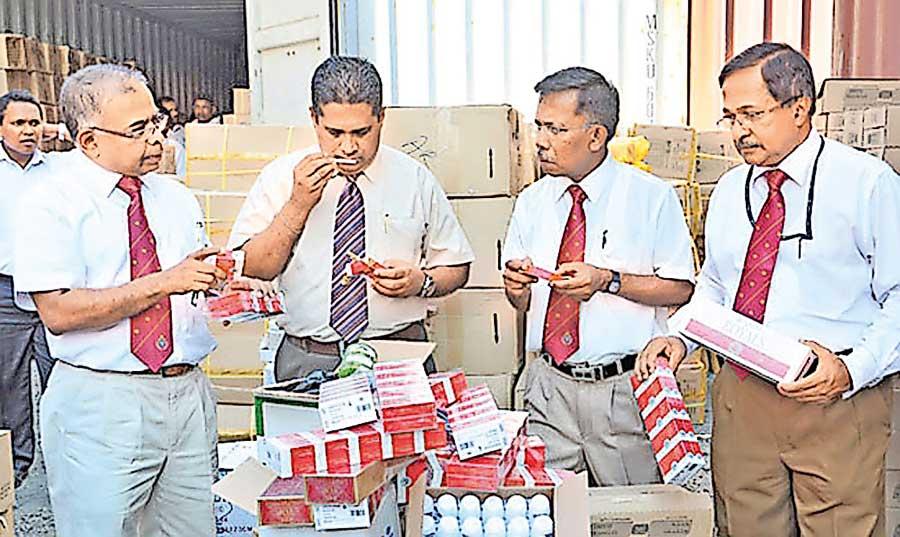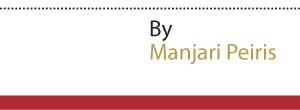Reply To:
Name - Reply Comment
Last Updated : 2024-04-18 19:11:00

Very often we happen to find news published in print media about seizure of illicit cigarettes in Sri Lanka. 
What is Illicit Tobacco Trade?
The World Health Organization (WHO) defines “Illicit Tobacco Trade” (ITT) as “any practice or conduct prohibited by law and which relates to production, shipment, receipt, possession, distribution, sale or purchase of tobacco products, including any practice or conduct intended to facilitate such activity”.
It is already revealed that Tobacco Industry (TI) deliberately smuggled its own products. A third of global cigarette exports end up on the illicit market almost entirely via illicit channels.
The illegality of ITT makes it difficult to measure and make transparent. Public data on the topic is limited and in many countries they are non-existent. Different sources use different methods. Vary widely in their estimates, which makes between country comparisons difficult. TI has exploited this complexity by commissioning reports on the topic that have been found to overestimate the scale of the problem when compared with independent research. Despite their inaccuracy, TI regularly uses data to support their claims about ITT and its drivers. Since many countries do not collect their own data on illicit trade, governments use industry-generated data for their official purposes.
The negative impacts of the ITT are wide ranging. First and foremost, increased consumption of tobacco leads to public health harms and increases the economic costs of tobacco-related illness. IT makes more products available on the market, at lower cost, and leads to direct increases in harms disproportionately affecting younger and poorer people. It also causes significant losses in government revenue.
Under “Illicit” there are three kinds of products, viz. smuggled tobacco products, counterfeits and illicit/cheap whites. Smuggled products are those produced legally by a manufacturer, but then diverted and sold illegally somewhere other than their intended destination.
TI has historically participated in the smuggling of its own products. Cigarette smuggling has also been linked to terrorist organisations and money laundering.
Counterfeits bear the trademark of a legal manufacturer without their consent. These products may be sold in the country of origin, or also smuggled to another market. TI regularly emphasizes counterfeit products as a major contributor to ITT. But World Customs Organisation data suggests that counterfeit product only makes up about 2% of the global illicit tobacco market.
European Commission defines, Cheap whites, or ‘illicit whites’, as: “brands manufactured legitimately in one market, either taxed for local consumption or untaxed for export, and sold knowingly to traders who transport them to another country where the products are sold illegally without domestic duty paid”. Either term, however, can be misleading: however you choose to refer to them, ‘illicit whites’ are not always illicit, and ‘cheap whites’ are not always cheap. Cheap/illicit cigarettes are legally manufactured by brands distinct from TTC trademarks, which often end up being smuggled into other markets. Cheap/illicit white brand trademarks are actually owned by TTCs and packaging does not contain health warnings or tax stamps in the country in which they are available.
The ITT is used by TI to promote key misleading narratives that advance their own business goals.
TI arguments are:
TI benefits from illicit trade in several ways;
Increase consumption of tobacco products by offering artificially cheap tobacco products.
Affordability of illicit products widens health inequalities
Directly undermines tobacco control, including circumventing tax increases and graphic health warnings designed to lower demand for tobacco products.
Even if the distributor sells the product illegally, the lower cost of the product can lead to more sales, meaning the distributor will order more products from the TTC.
Strategic increases in the volume of illicit products are used by the industry to counter tax rises.
TI has also historically used illicit trade to open up or soften entry to new markets.
The ITT provides an opportunity for the TI and its allies to get involved in customs and law enforcement responses to address ITT which, in turn provides opportunities to influence policy more broadly. Given the TI’s involvement with IT, it is perhaps unsurprising that it has also attempted to undermine and control efforts to address tobacco smuggling.
Evade paying tax to governments
Strategies that TI has used to attempt to get in touch with authorities tasked with addressing ITT and to influence policy measures to address ITT include:
WHO-FCTC Article 15
WHO’s FCTC came into force in 2005. The Article 15 of the FCTC focuses on eliminating the global ITT. These negotiations led to the Protocol to Eliminate Illicit Trade (ITP).
Protocol to eliminate illicit trade
The ITP is the first legally binding instrument adopted under the FCTC. It aims to be a coordinated international response to the problem of ITT. It was adopted the 5th Conference of the Parties (COP) in November 2012 and entered into force on September 25, 2018. By 2020 there were 61 Parties to the Protocol and Sri Lanka too became one. The Protocol is made up of 47 Articles outlining its provisions and the steps that Parties are expected to effectively tackle ITT.
The Article 4 of the ITP outlines the general obligations of all Parties to the Protocol;
Obligations of Parties to the FCTC: The ITP states that Parties must not delegate any of their tracking and tracing obligations to the TI due to the irreconcilable conflict between TI interests and public health interests.

Add comment
Comments will be edited (grammar, spelling and slang) and authorized at the discretion of Daily Mirror online. The website also has the right not to publish selected comments.
Reply To:
Name - Reply Comment
On March 26, a couple arriving from Thailand was arrested with 88 live animal
According to villagers from Naula-Moragolla out of 105 families 80 can afford
Is the situation in Sri Lanka so grim that locals harbour hope that they coul
A recent post on social media revealed that three purple-faced langurs near t

10 Apr 2024
09 Apr 2024